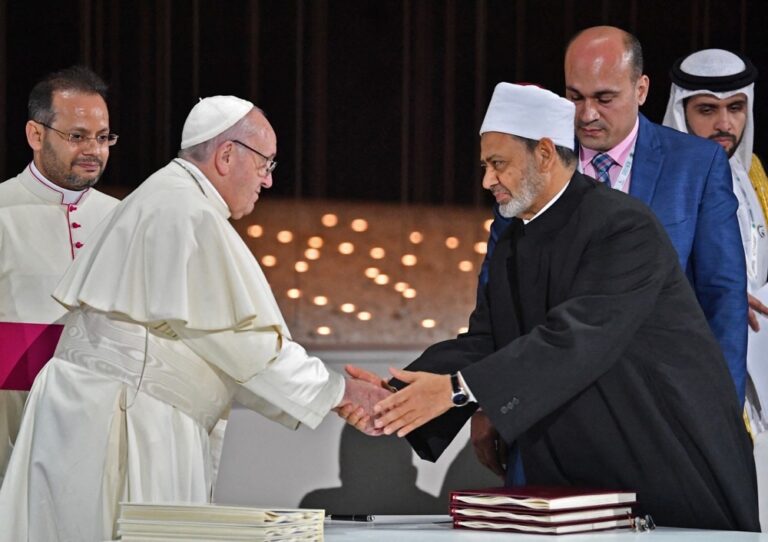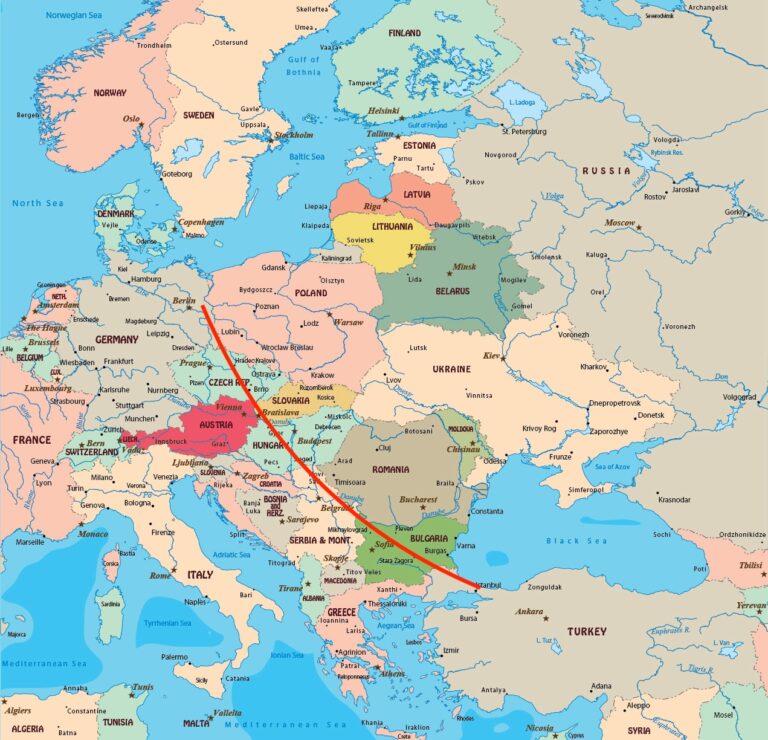By Andrea Tucci,
Pope Francis he always preferred to be called “Father” rather than “Your Holiness, carried a message of humility far “beyond Vatican walls”.
Elected on March 13, 2013, following Benedict XVI’s resignation, Francis inherited a church in crisis, from widespread clergy abuse scandals to infighting within the Curia.
He was chosen with a clear mandate to restore credibility and accountability, quickly shifting the church’s tone and priorities, steering the church toward greater openness, transparency and engagement with global issues.
Among the most distinctive aspects of Francis’ papacy was his engagement with the Middle East and the Arab world. His leadership was marked by historic outreach to both Muslim and Christian communities, with a persistent focus on peace and human dignity.
In 2019, he made history as the first pope to visit the Arabian Gulf, traveling to the United Arab Emirates. He later visited Bahrain in 2022. Both trips highlighted his commitment to interfaith dialogue, religious freedom and peaceful coexistence, as he met with regional leaders and addressed human rights concerns.
During his visit to the UAE, the pope and Sheikh Ahmed El-Tayeb, grand imam of Egypt’s Al-Azhar Mosque( here in the picture of the article), signed the “Document on Human Fraternity.” The agreement pledged a lasting partnership to reject violence and extremism.
Francis’ commitment to peace was further highlighted in 2021 with his historic pilgrimage to Iraq, where he met privately with Grand Ayatollah Ali Sistani, a leading figure in Shiite Islam. This visit marked a significant milestone in interfaith dialogue and reinforced Francis’ efforts for peace and reconciliation in the Middle East.
In December 2024, Francis welcomed Mohammed Al-Issa, secretary-general of the Makkah-based Muslim World League (MWL), to the Vatican, where they discussed mutual cooperation and shared interests.
While his public statements often drew both praise and criticism, they consistently reflected his defense of civilian life and dignity in conflict zones. Many times he called for a ceasefire during the war and the end of the war in Gaza and he often criticized political leaders for their lack of commitment to peace.
In 2015, he signed a treaty that officially recognized Palestine as a state, by consistently advocating for a two-state solution for Israelis and Palestinians, Francis left a legacy as a tireless voice for peace and human dignity, in the Arab world and beyond.
In 2024, he denounced Israel’s military campaign in Gaza as “immoral” and “disproportionate,” urging an investigation into whether the actions amounted to genocide. The statement sparked diplomatic tensions with Israel, but Francis remained steadfast.
On the day before his passing, Francis dedicated part of his Easter message to Palestinians in war-torn Gaza, for an immediate ceasefire in the Gaza Strip, for the release of the hostages and for access to humanitarian aid and his voice has contributed to draw the attention to the significant dehumanization of the war in Gaza and beyond.
Moreover, Francis consistently championed Lebanon as an example of religious pluralism and a beacon of peace and he reaffirmed the cedar country vocation to be a land where diverse communities live together in concord, a land where different religions and confessions encounter one another in a spirit of fraternity.
The pope’s lifelong dedication to service and dialogue,will be remembered for his efforts to promote interfaith dialogue and work to build bridges between communities, promoting harmony and peace among people of all faiths, in the power of mutual understanding and cooperation in the Middle East region and beyond.
In a famous quote, Pope Francis said: “True religious faith does not generate division, conflict, or war; contrary it promotes communion, solidarity, and dialogue for peace.”
The hope that the future of the Church will continue on this path so that, first of all, the WAY TO PEACE may soon be found.


